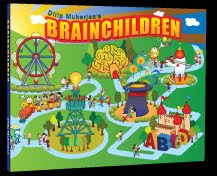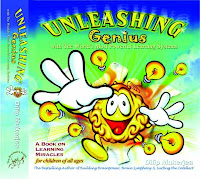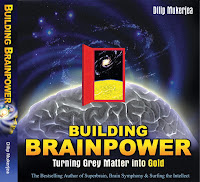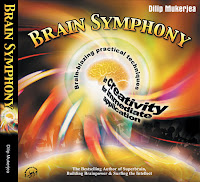
"To enjoy a superior view!"
This wonderful metaphor from the animal kingdom comes from thinkologist Dudley Lynch, who is also the lead author of a series of great books on accelerated self-growth, including 'The Strategy of the Dolphin: Scoring a Win in a Chaotic World' (1989), & 'Code of the Monarch: A Guide to the Real Global Business Revolution' (1990) [both with Paul Kordis].
As a matter of fact, I recall one of the earliest & most provocative business strategy books I have read during the eighties - at that time, I had just secured my third career transition towards general management - was the 'Strategy of the Dolphin'.
I was then extremely fascinated by the author's original, far-sighted concepts. Far from being dated in spite of the transpiration of time, & for me, they are still very relevant in today's context.
[I reckon, with a little bit of hindsight, my fascination with the dolphin at that time probably had to do with the sci-fi thriller movie, 'The Day of the Dolphin', starring one of my favourites, George C Scott, as a marine biologist, during the mid-seventies. In the movie, he had unwittingly trained a dolphin to kill the US President.]
In fact, the author's principal premise in the book made a lot of practical sense for me:
"The strategy of the dolphin requires that we constantly think about how we think. This raises the human coping & change capabilities available by an order of magnitude."
According to the author, most of today's managers, professionals & entrepreneurs, looking operationally from the strategy standpoint, could be classified into three competing paradigms:
- the sharks;
- the carps;
- the dolphins;
These are the basic metaphorical characteristics of each species, according to the author:
THE SHARKS:
- their scarcity mindset dictates their actions & reactions;
- they love to move in for the kill, striving to get as much as they can everywhere, regardless of the cost;
- their perception: there must be winners & losers;
- their basic nature: to take over or trade off;
- they assume they always have the only possible solution;
- they have desperate need to be right 100% of the time & will go to any extreme to cover up failures & shortcomings;
- they are difficult to work with sharks because they lack ability to use creative strategies;
- they are unable to try out difficult things or learn from mistakes;
THE CARPS:
- they are also scarcity minded, but unlike sharks, they believe they can never be winners;
- they always focus their efforts on not losing what they currently have;
- they do not like any type of confrontation;
- their preferred response: give in (nothing left, eaten alive) or get out (cut off & isolated);
THE DOLPHINS:
- they have brains as large as ours, which explains why they are the most accomplished all
-around thinkers of the deep;
- they are inquisitive, observant, innovative & are quick learners;
- they are the only occupants of the sea that can butt heads with a shark;
- they quickly & precisely alter behaviours to get what they want;
- they have the ability to successfully adapt to any situation;
- they learn from their mistakes & mistakes of others;
- they behave in both potential abundance & potential security;
- they learn to leverage what they have & use their resources superbly;
No wonder, as you can see, the dolphin is one of the world's smartest creatures that's not like any other "fish in the sea" - the carp (co-dependent who shirks responsibility) & the shark (greedy & aggressive control freak).
According to the author, the fundamental difference between dolphins and their fellow sojourners in "the pool" is that dolphins understand the importance of knowing what their purpose in life is & whether at any given time they are on purpose, & carps and sharks often do not.
So, in the end analysis, the dolphin strategy is the most elegant choice. Remember, a dolphin can even outsmart a shark any time!
Best of all, when something isn't working, a dolphin does something different!
That's a powerful lesson for surviving - & thriving - in the 21st century!
Over the many years ever since I had read this book (& also the accompanying action manual, 'DolphinThink Workbook', from the author), I have always adopted - & put to work - many of the author's significant ideas & practical insights in my own life pursuits, professionally as well as personally.
I have found the powerful metaphor of the dolphin very enriching & also very rewarding.
[Personally, I had read - & digested - all the author's other published works, which also include:
- 'The Mother of All Minds: Leaping Free of an Outdated Human Nature' (2003);
- 'Evergreen: Playing a Continuous Comeback Business Game' (1995) [with David Neenan];
- 'The Dolphin' High Performance Business Brain: 21st Century Thinking Skills for Ambitious People Under Challenge or Under Fire' (1993); &
- his debut book, now out-of-print, which started my personal quest, 'Your High Performance Business Brain: an Operator's Manual : How to Fine-tune the Management Mind to Increase Productivity & Profits ' (1984);
He has also developed the world's most uniquely productive personality profiles, namely:
- 'Asset Report';
- 'The BrainMap';
- 'The mCircle Instrument';
- 'MindMaker';
- 'PathPrimer';
the practical insights of which I had also put to work.
[More information about Dudley Lynch & his thoughtwares can be found on his corporate website. Readers can also visit the author's weblog, 'Deep Seer Blog for Dolphins'.]
















No comments:
Post a Comment